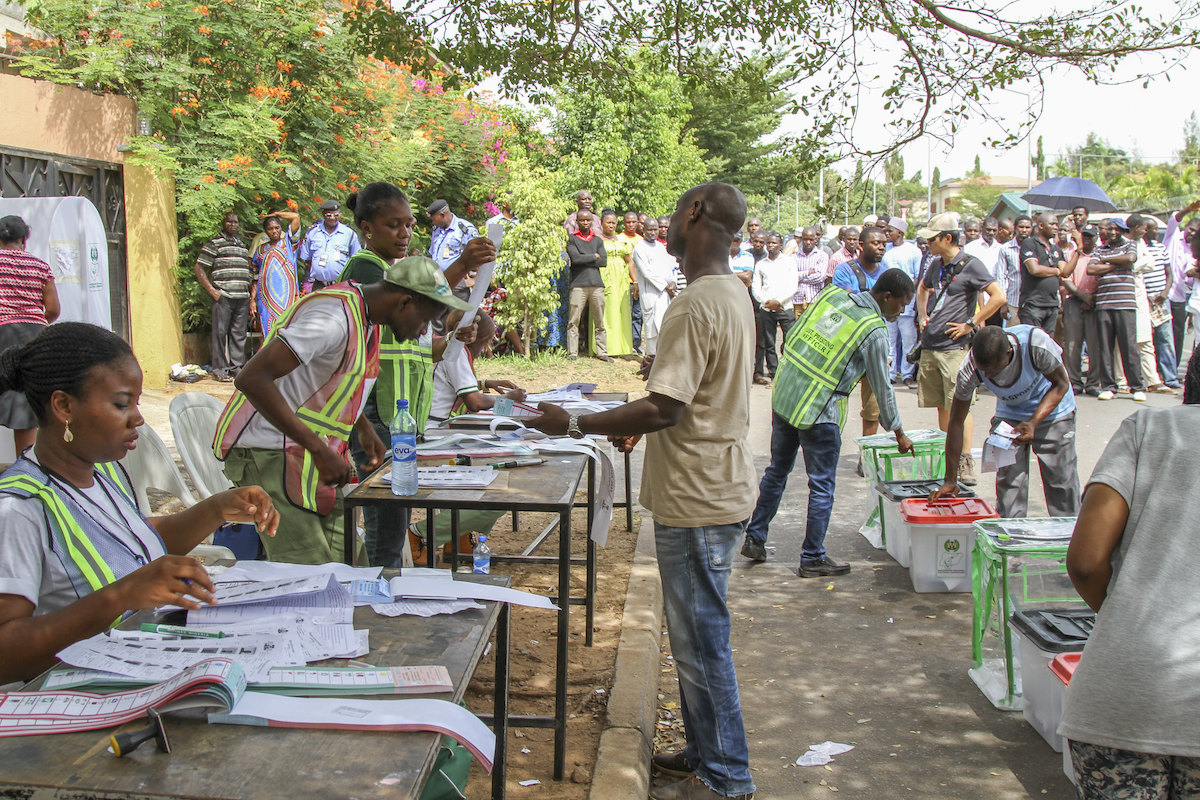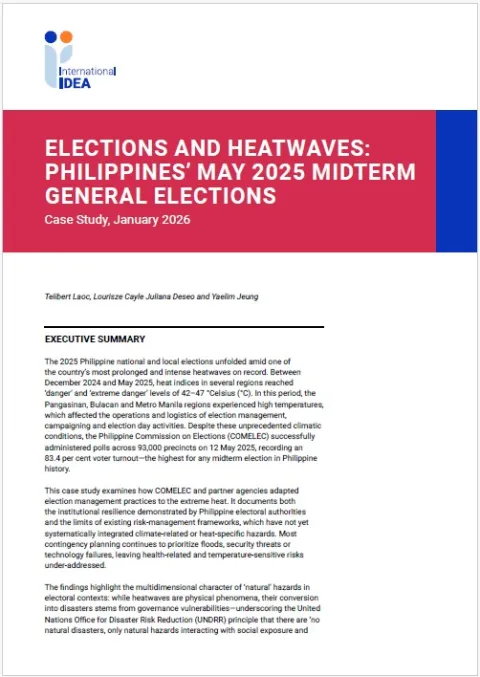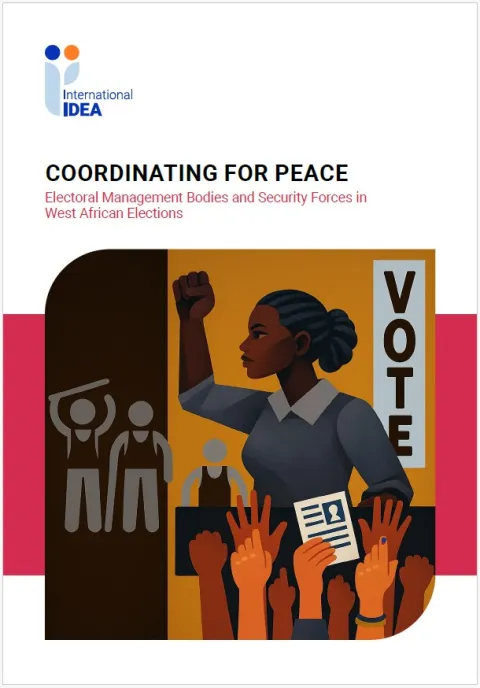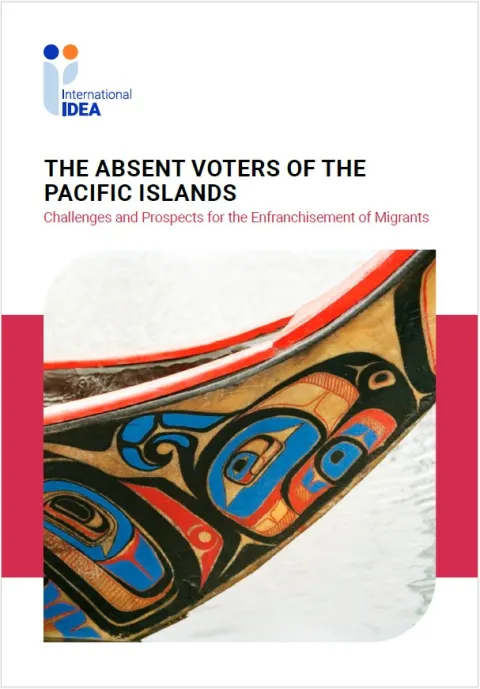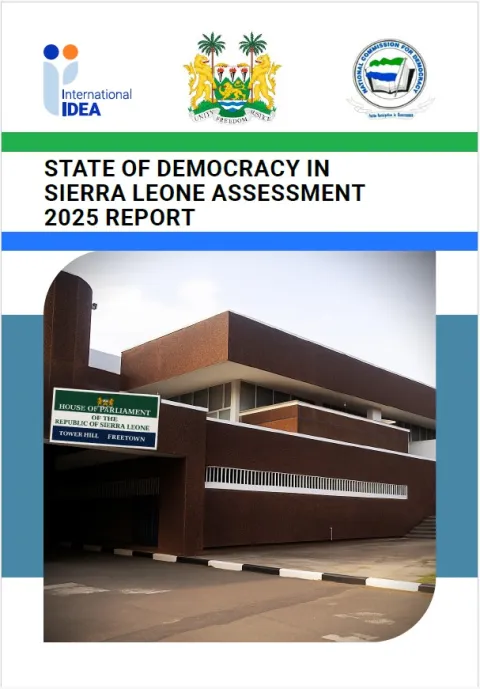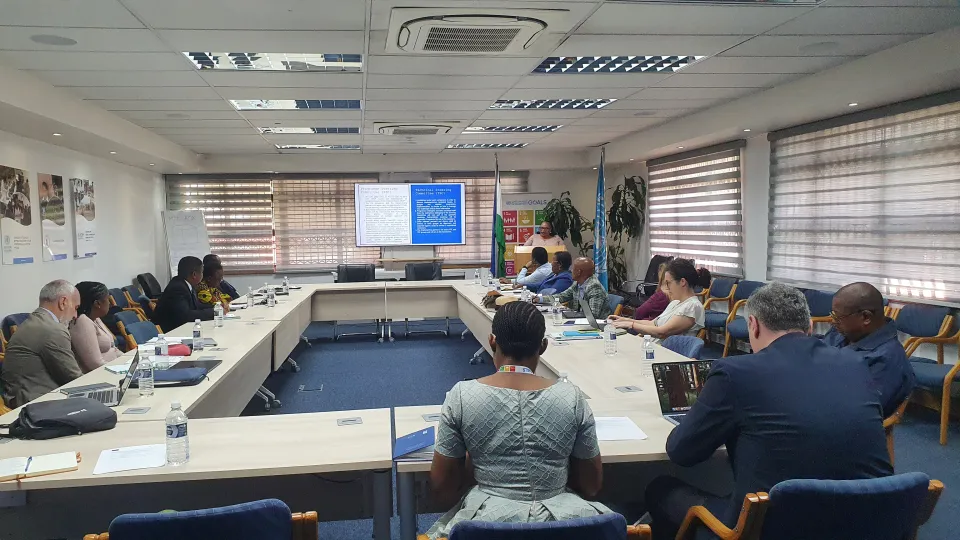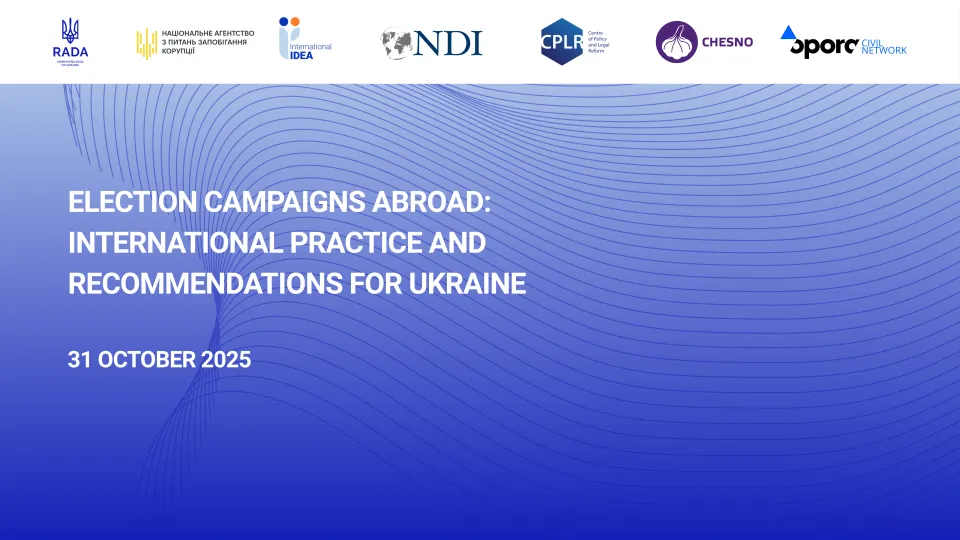Voting from Abroad
The constitutions of many countries guarantee the right to vote for all citizens.
However, in reality, voters who are outside their home country when elections take place are often disenfranchised because of a lack of procedures enabling them to exercise that right.
Voting from Abroad: The International IDEA Handbook examines the theoretical and practical issues surrounding external voting. It provides an overview of external voting provisions in 115 countries and territories around the world, including a map illustrating the regional spread.
Details
Related databases & tools
Contents
A map of external voting practices in 214 countries and related territories
Introduction
Nadja Braun and Maria Gratschew
1. External Voting: a comparative overview
Carlos Navarro, Isabel Morales and Maria Gratschew
2. The history and politics of external voting
Andrew Ellis
Case studies
The Cook Islands: seat for overseas voters abolished - Graham Hassall
Indonesia: a long-established system for external voting at diplomatic missions - Alan Wall
Zimbabwe: highly restrictive provisions - Ozias Tungwarara
Mozambique: a system that is too subjective? - Simon-Pierre Nanitelamio
3. The legal framework and an overview of electoral legislation
Dieter Nohlen and Florian Grotz
Case studies
Colombia: representation of emigrants in the Congress - Nydia Restrepo de Acosta
Portugal: extended voting rights and decreasing participation - Marina Costa Lobo
4. Entitlement to vote
Phil Green
Case studies
Senegal: a significant external electorate - Richard Vengroff
The Marshall Islands: a high proportion of external voters - Jon Fraenkel
5. The implementation of external voting
Judy Thompson
Case studies
Brazil: compulsory voting and renewed interest among external voters - Leticia Calderón-Chelius
Honduras: a decision based on political calculations - Jacobo Hernández Cruz
6. Host country
Brett Lacy
7. The political rights of refugees and displaced persons: enfranchisement and participation
Jeff Fischer
Case studies
Afghanistan’s 2004 presidential election: external voting for a large displaced population - Catinca Slavu
Bosnia and Herzegovina: post-war trends in external voting - Linda Edgeworth and Nada Hadzimehic
Iraq: a large diaspora and security concerns - Judy Thompson
8. The political rights of migrant workers and external voting
Carlos Navarro Fierro
Case studies
The Dominican Republic: political agreement in response to demands for the right to vote from abroad - Luis Arias Núñez
Mexico: safeguarding the integrity of the electoral process - Carlos Navarro Fierro and Manuel Carillo
The Philippines: the first experience of external voting - Philippines Committee on Overseas Absentee Voting
Cape Verde: a large diaspora and low turnout by external voters - Nuias Silva and Arlinda Chantre
9. Observation of external voting
Kåre Vollan
10. E-voting and external voting
Nadja Braun
Case studies
Estonia: more options for external voting - Epp Maaten
Switzerland: external voting in a federal state with direct democracy - Nadja Braun
Annex A. External voting: a world survey of 214 countries and territories
Annex B. Glossary of terms
Annex C. References and further readings
Annex D. The cost of external voting: some examples
Annex E. About the contributors
Give us feedback
Do you have a question or feedback about this publication? Leave us your feedback, and we’ll get back to you
Send feedbackVoting from Abroad
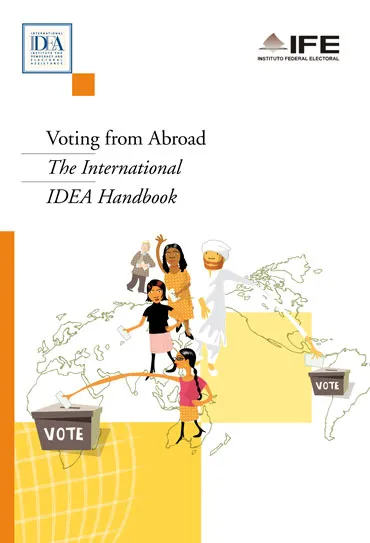
| Total views | 31220 |
|---|---|
| Downloads | 658 |
| Rating |
Related databases & tools
Give us feedback
Do you have a question or feedback about this publication? Leave us your feedback, and we’ll get back to you
Send feedback